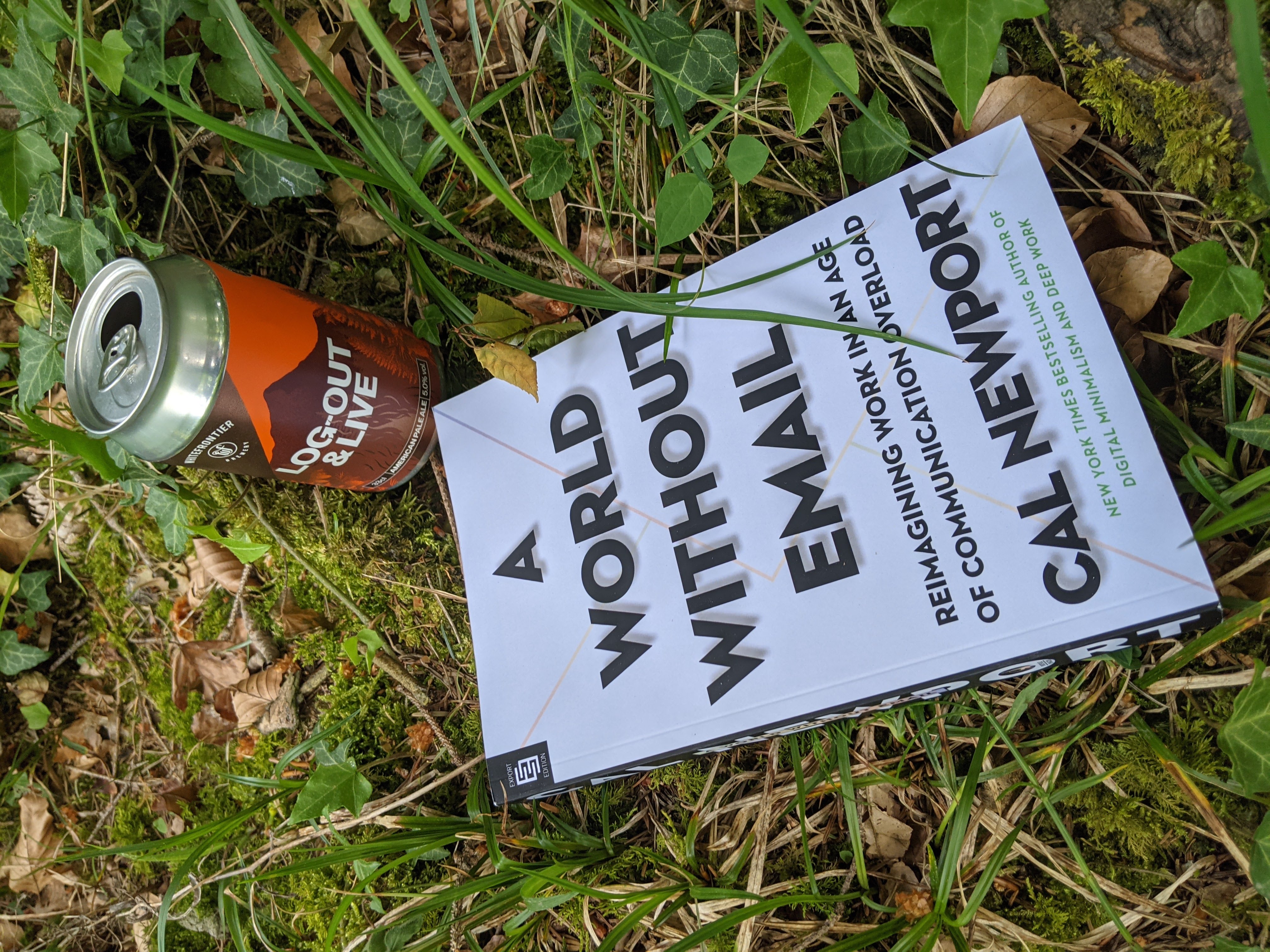A World Without Email
12 July 2023
Cal Newport's A World Without Email is a book that was recommended to me at this year's Socrates Conference by several people. The title is deliberately provocative, as email is such an integral part of life these days, but is a bit of misdirection as he's not talking about giving up the tool entirely. When social media was young and I followed the stream of Twitter often I likened it to the Buddhist concept of Nirvana: being one with the stream of consciousness of everyone. Fast forward a few years and we've realized that Nirvana is a special sort of Hell, especially for young and impressionable minds. Gen Z will forever bear the scars of what we've wrought. Newport's book, however, limits himself to discussing how email's always on, multithreaded, unstructured, and unscheduled conversation, which he dubs the "hyperactive hive mind", kills our productivity and self esteem at work. So many jobs, especially for knowledge workers, have fallen into the antipattern of working the inbox all day. Newport's book is about escaping that workflow for a more productive one.
The first part of the book argues that this hyperactive hive mind workflow reduces productivity and work enjoyment, but the second part provides a prescription of what can replace it. And it doesn't actually involve giving up email completely (unlike Jaron Lanier's book on deleting your social media accounts). Newport spends the bulk of this second part expounding on four principles:
- The Attention Capital Principle: The productivity of the knowledge sector can be significantly increased if we identify workflows that better optimize the human brain's ability to sustainably add value to information.
- The Process Principle: Introducing smart production processes to knowledge work can dramatically increase performance and make the work much less draining.
- The Protocol Principle: Designing rules that optimize how and when coordination occurs in the workplace is a pain in the short term, but can result in significantly more productive operation in the long term.
- The Specialization Principle: In the knowledge sector, working on fewer things, but doing each thing with more quality and accountability, can be the foundation for significant more productivity.
It's probably also a good idea to mention that, although he repeatedly references Peter Drucker, Newport is a professor of computer science, not business. Nevertheless, the book provides a number of case studies in real businesses that illustrate his points. I'd definitely recommend reading it not just if you are interested in managing people better, but also if you're interesting in managing your own time better.

